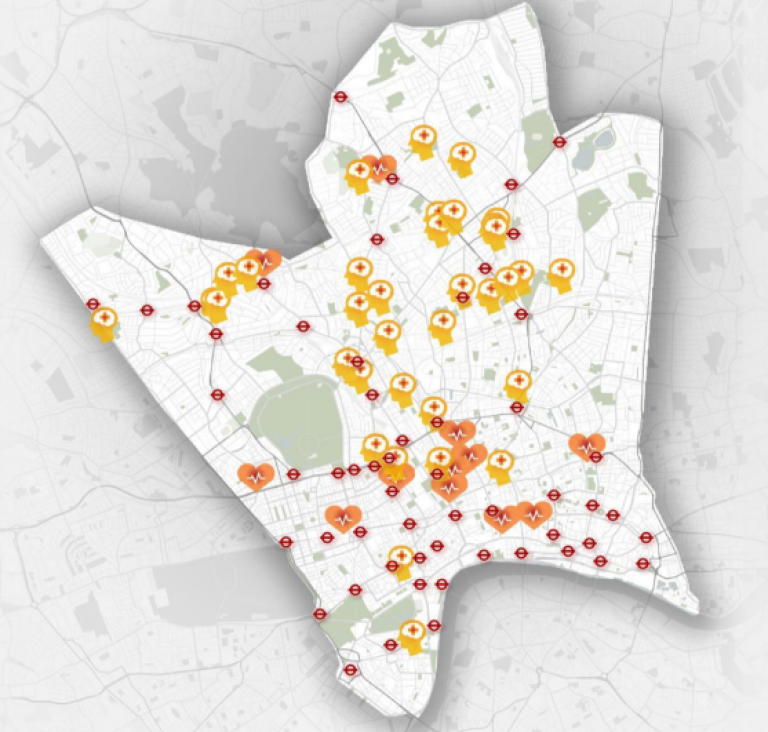The Social Invisibility of Mental Health Facilities
Raising awareness and understanding of social exclusion in urban environments through place and space.

23 January 2020
With research indicating that mental healthcare still remains the Cinderella of any healthcare system, this project aimed to identify if inequality could be detected by examining the exterior of mental health facilities and their urban integration. The study explored the structural stigma of mental health facilities in comparison to healthcare facilities and to examine the attitude of society towards mental illness through the buildings that house facilities.
To do so, the project team used proximity to transportation through mapping architectural materiality/facade analysis using photographs. This juxtaposed mental vs healthcare facilities in access, condition, and status compared to their surroundings and created a multimedia exhibit.
The research identified factors that contribute to the isolation of mental health facilities both in aspects of space and place. The research found that the phenomena of NIMBYism and social exclusion of mentally ill people in society are still a reality. The exhibition demonstrated the under-budgeting of mental health facilities and their stigmatisation as expressed by the centrality of locations and the overall projected image of the building exteriors.
The results of the project have been widely presented and led to a number of peer-reviewed outputs as well as an exhibition and award-winning poster. Other notable outcomes include the project resulting in a consultancy project: Consultancy on Implementing research and best practice for the development of mental health hubs in the community for the Camden and Islington NHS Foundation Trust, London, UK. This is being undertaken through UCLC. The researchers are also in discussions with the Division of Information, Evidence, Research and Innovation of the World Health Organisation for expanding the project and connecting it to WHO Healthy Cities Network.
 Close
Close


